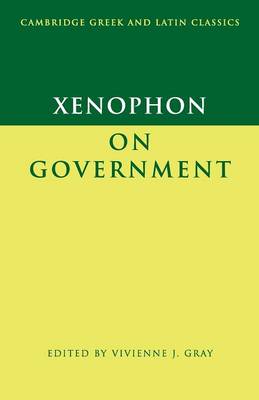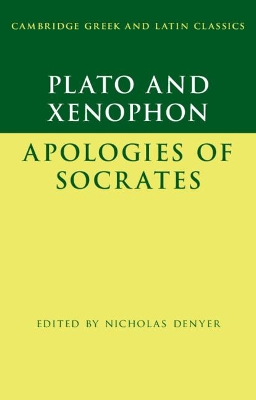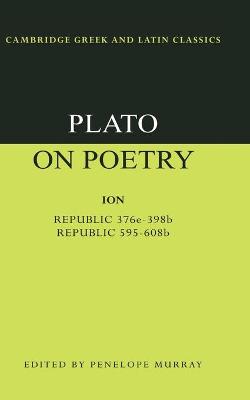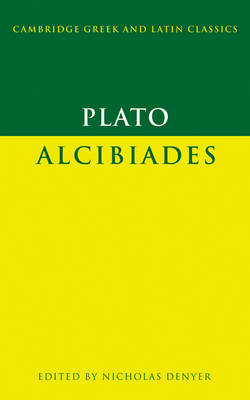Cambridge Greek and Latin Classics
4 total works
Xenophon of Athens was a pupil of Socrates and a philosopher in his own right. He wrote two of the texts included in this volume, the Hiero (On Tyranny) and the Constitution of the Spartans. The third, the Constitution of the Athenians, is found under Xenophon's name alongside the other two in the manuscripts. The works represent three distinct types of government (the rule of one man in tyranny and kingship, the rule of law in the mixed constitution of the Spartans, and the rule of the masses in the Athenian democracy), but there are common features throughout. This volume presents an introduction discussing Xenophon's views on government in the context of his general political thought, drawing particularly on his Socratic work Memorabilia, and a commentary on the Greek text of each work aimed primarily at advanced undergraduates and graduate students.
Plato: The Apology of Socrates and Xenophon: The Apology of Socrates
by Plato and Xenophon
Published 18 April 2019
In 399 BC Socrates was prosecuted, convicted, sentenced to death and executed. These events were the culmination of a long philosophical career, a career in which, without writing a word, he established himself as the figure whom all philosophers of the next few generations wished to follow. The Apologies (or Defence Speeches) by Plato and Xenophon are rival accounts of how, at his trial, Socrates defended himself and his philosophy. This edition brings together both Apologies within a single volume. The commentary answers literary, linguistic and philosophical questions in a way that is suitable for readers of all levels, helping teachers and students engage more closely with the Greek texts. The introduction examines Socrates himself, the literature generated by his trial, Athenian legal procedures, his guilt or innocence of the crimes for which he was executed, and the rivalry between Xenophon and Plato.
Prior to publication of this 1996 book, much had been written on Plato as a critic of literature, but no commentaries had appeared in English on the Ion, or the opening books of the Republic in which Plato launches his famous attack on poetry, since the early years of this century. This volume brings together these texts and the relevant section of Republic 10. It aims to provide the reader with a commentary which takes account of modern scholarship on the subject, and which explores the ambivalence of Plato's pronouncements on poetry through an analysis of his own skill as a writer. A general introduction sets Plato's views in the wider context of attitudes to poetry in Greek society before his time, and indicates the main ways in which his writings on poetry have influenced the history of aesthetic thought in European culture.
The Alcibiades was widely read in antiquity as the very best introduction to Plato. Alcibiades in his youth associated with Socrates, and went on to a spectacularly disgraceful career in politics. When Socrates was executed for 'corrupting the young men', Alcibiades was cited as a prime example. This dialogue represents Socrates meeting the charming but intellectually lazy Alcibiades as he is about to enter adult life, and using all his wiles in an attempt to win him for philosophy. In spite of its ancient reputation, many modern scholars have thought that the Alcibiades is not by Plato and it has therefore lacked a decent commentary. This edition remedies that lack. The notes explain difficulties of linguistic, literary and philosophical detail. The introduction includes a discussion of the dialogue's authenticity, and of the consequences that acknowledging its authenticity has for our conception of Plato's intellectual development.



